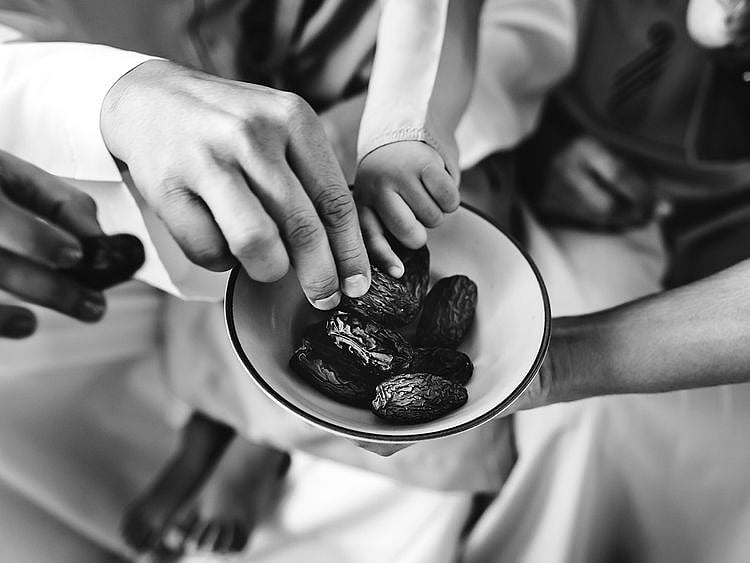Know the UAE: What is Ramadan?
What you need to know about Ramadan - the culture, traditions, values and rules

Ramadan is the ninth month of the Hijri calendar. It was the month in which the Quran was revealed to Prophet Mohammed (PBUH) on the night of Laylat Al Qadr, one of the last ten nights of Ramadan.
The annual observance of fasting during Ramadan is considered one of the five pillars of Islam.
During Ramadan, capable Muslims are required to abstain from eating and drinking from dawn to dusk. It’s a very important month in the UAE.
How is Ramadan observed in the UAE?
The Ramadan traditions in the UAE start mid-Shaaban (the month preceding Ramadan). This day is known as Hagg Al-Layla.
Emirati children dress in their best clothes and go to houses in the neighbouring areas reciting songs and poems. The neighbours welcome them with sweets and nuts, which is collected by children in traditional cloth bags.
On the first night of Ramadan, the family gathers at the house of the male head of the family, usually the grandfather, for their first Iftar (end of fast).
Traditional Emirati fare includes Khuzi (stuffed whole roast lamb or goat on a bed of spiced rice), Machboos (casserole of lamb or chicken layered with rice seasoned with spices and some saffron) or Al Madrooba (a mix of salted fish, spices and thick sauce).
There are celebrations, bazaars, shopping sales, cultural events and competitions through the month.
What you need to know about Ramadan
Ramadan arrives as per the Islamic lunar calendar, which has 354 days. Hence, it arrives 11 days earlier in every subsequent year of the Gregorian calendar.
The UAE follows an official announcement about the first day of Ramadan from a moon-sighting committee in Makkah, Saudi Arabia.
The Islamic calendar is lunar-based; each month corresponds to the phases of the moon and lasts either 29 or 30 days.
The beginning of an Islamic month is determined by visibly sighting the slight crescent moon (hilal) that marks the beginning of the next month.
Ramadan begins at the first sighting of the new crescent moon. Effectively the 30-day period is the entire moon cycle.
Ramadan lasts for one complete moon cycle, which is usually 29 or 30 days. The moon sighting determines the duration.
People greet each other by saying 'Ramadan Kareem', which means 'Happy Ramadan'.
To Muslims, fasting during Ramadan is one of the five pillars of Islam. Adult capable Muslims are required to fast by abstaining from eating, drinking and smoking, from dawn till dusk every day throughout Ramadan.
Fasting is ended at sunset or Maghrib with the sundown call for prayers, following which people consume dates and buttermilk. And then after a praying sit down to a traditional meal with family and friends.
In addition to the regular 5 daily prayers, Muslim men and women perform Tarawih prayers daily after Isha prayers later in the evening during Ramadan.
Following that, much later people have Suhoor, which is consumed early in the morning before fasting begins.
Changes during Ramadan:
According to Federal Law No. 8 of 1980 regarding Labour Law and its amendments, working hours are reduced by two hours during Ramadan. Even non-Muslims are entitled to reduced working hours during Ramadan without a pay cut.
Most restaurants adhere to the hours of fasting. They close business during the day and open after the evening prayers. Some might offer food within enclosures.
Some restaurants and cafes are open during the day and people are free to order food for take it away to consume in private.
Supermarkets and groceries will be open as usual. People can do their shopping as they would otherwise.
Hours of paid parking change during Ramadan. Information about the parking timings, fees and modes of payment are indicated on the parking meters in the designated areas.
Government transport entities in each emirate can be contacted for more information about the changes in timing and fees during Ramadan.
Malls remain generally open during the day and stay open later than usual.
Iftar Cannon (Midfa Al Iftar)
Firing the cannon is an integral part of the Islamic culture in the UAE and takes place in many regions across the country. It can be heard around 8-10 km away. It signals the moment when Muslims can break their fast and once fired. This tradition is known to people since the founding of the UAE.
Ramadan etiquette for non-Muslims
Non-Muslims do not have to fast in Ramadan. However, they are prohibited from eating, drinking and smoking in public during the fasting hours. This includes chewing gum.
Non-Muslims are free to eat and drink in the privacy of their own home, as well as in designated areas.
Wear respectful clothing and do not behave inappropriately, especially in public.
Consumer protection during Ramadan
During Ramadan, the demand on commodities increases and some retailers take advantage of the situation. To avoid consumer exploitation and fraud, Ministry of Economy has set a price cap on essential commodities during the month. The regulations also ensure that stockpiles of all essential commodities are maintained.
Ministry of Economy is keen to communicate with consumers and receives complaints, suggestions and feedback through its Consumer Protection Call Centre. You can contact the ministry on 600-522-225.
Reporting beggars
Begging for alms is a crime. The fasting month of Ramadan historically records an influx of people arriving into the country as part of an elaborate con to raise funds, according to the UAE's Ministry of Interior.
Beggars are liable to fine and/or deportation as decided by the courts.
You can report beggars in:
Information Courtesy: government.ae
Sign up for the Daily Briefing
Get the latest news and updates straight to your inbox
Network Links
GN StoreDownload our app
© Al Nisr Publishing LLC 2026. All rights reserved.